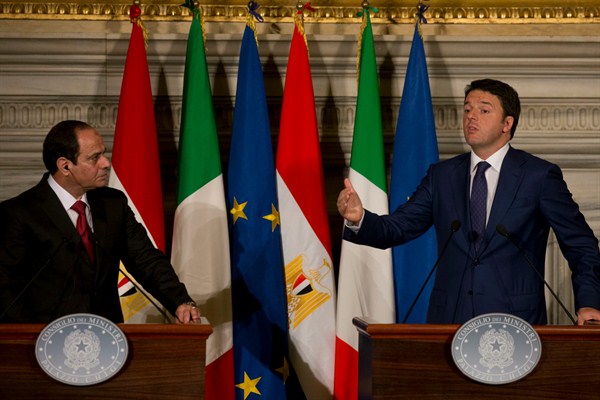Earlier this month, Italy cooperated with Libyan military commander Gen. Khalifa Haftar to ensure the delivery of 700,000 barrels of oil from eastern Libya, despite the fact that the Italian government officially supports the United Nations-backed national unity government in Tripoli that Haftar opposes. In an email interview, Silvia Colombo, a senior fellow at the Institute of International Affairs, discusses Italy’s policies in North Africa and the Middle East.
WPR: Who are Italy’s main partners in North Africa and the Middle East, and to what extent do hydrocarbons drive relations?
Silvia Colombo: Italy’s foreign policy has always had a distinct Mediterranean dimension. Italy’s relations with North Africa and the Middle East have traditionally been centered around Algeria and Libya as a result of important historical, geographical and commercial connections, most of all the Italian colonization of Libya from the 1910s until 1947. The presence of substantial hydrocarbon reserves in Algeria and Libya, and the ability of a company such as Italian energy giant ENI to establish preferential relations with the oil and gas authorities there, has provided a strong base for bilateral cooperation. In 2009, Algeria and Libya accounted for over 45 percent of Italy’s gas imports. Contrary to other European countries, Italy has always been perceived as a reliable commercial partner in the region and one that does not impose strict political conditions on bilateral cooperation.

